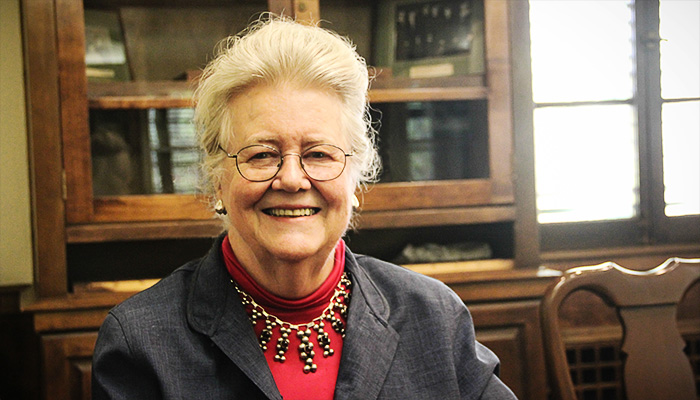A little over 30 years ago, feminist author and anti-racism activist Peggy McIntosh arrived at Scripps College to present an essay entitled “Interactive Phases of Curricular and Personal Re-Vision: A Feminist Perspective” for the first time publicly. Today, at the age of 79, her essays are well-known cornerstones for studying privilege and oppression. Dr. McIntosh returned to campus this past October to deliver the a talk to a new generation, but more specifically, to discuss the problem of privilege in the classroom.
Over a two day period, McIntosh engaged the Scripps community in a series of public lectures, small group meetings, and discussions with administrators on privilege systems and the concept of “experts.” Specific topics discussed in the series included problems of monocultural perspective, feelings of fraudulence, and the interrelation of male privilege and white privilege. McIntosh shared her own feelings of fraudulence from the beginning of her career as a teacher and author which eventually led her to realize so-called “experts” don’t necessarily know all the answers either.
This experience inspired “SEED” (Seeking Educational Equity & Diversity), a national project seeking to reframe classroom experiences for a better education by dismantling barriers keeping the power of knowledge in the hands of the privileged. When we believe only certain people in a field are allowed to be the experts, we doubt the validity of our own experiences and contributions.
“[The problem] is this concept of ‘experts’, of who gets to sit at the big desk,” says McIntosh. “Students in particular do not get to freely give their input in this environment… It contributes to a maintenance of power.”
McIntosh also believes in taking the voices and experiences of students seriously. By promoting a classroom environment where every student is actively encouraged to share their opinions and experiences, rather than the teacher controlling the flow of information from their position of power, students can evolve from “fact learning” to “life learning.” McIntosh’s direct engagement with the Scripps community, particularly the students, is a reflection of that belief, which she feels has become even more important in the information age of the Internet.
“We now have a generation who are very literate in online technology and can access information on their own,” says McIntosh. “It will certainly be interesting to see how that challenges ‘expertise.'”


